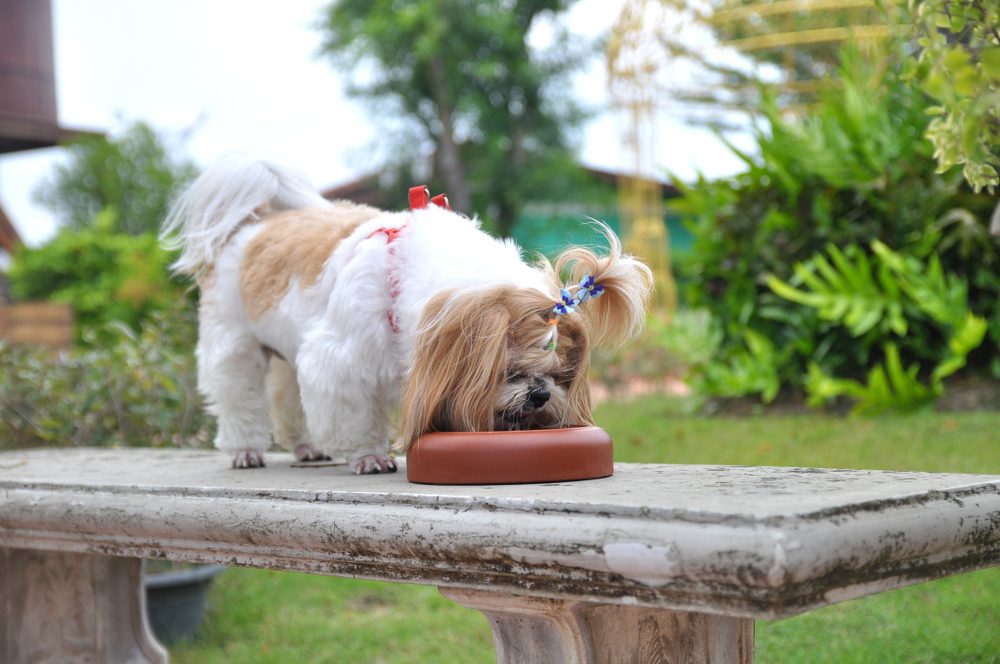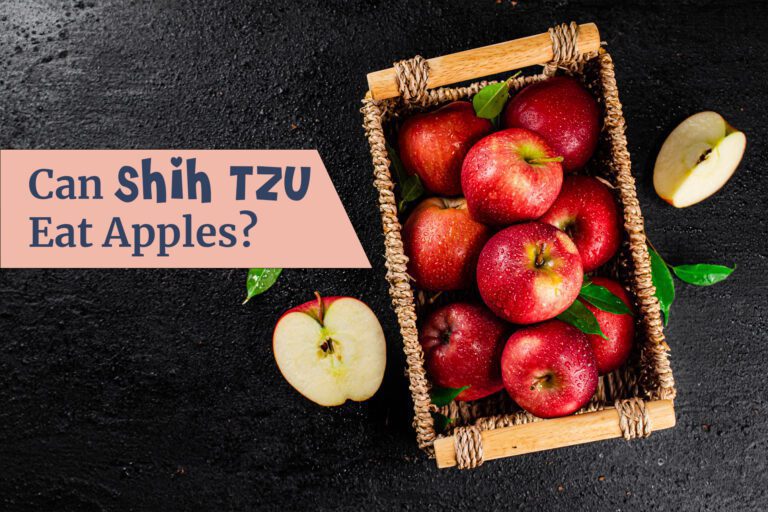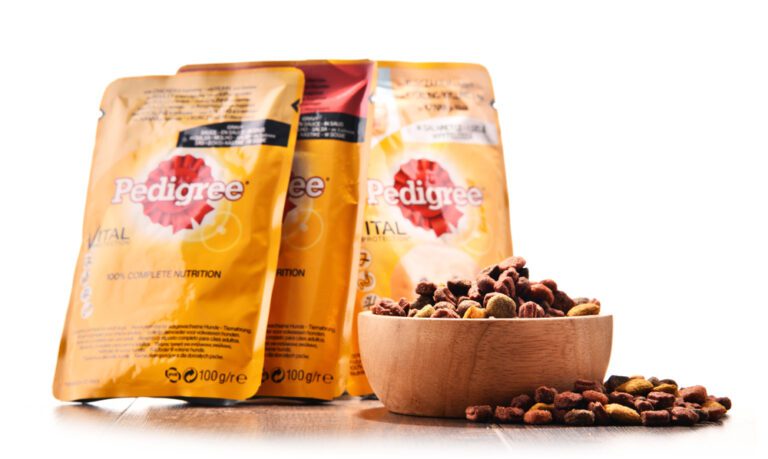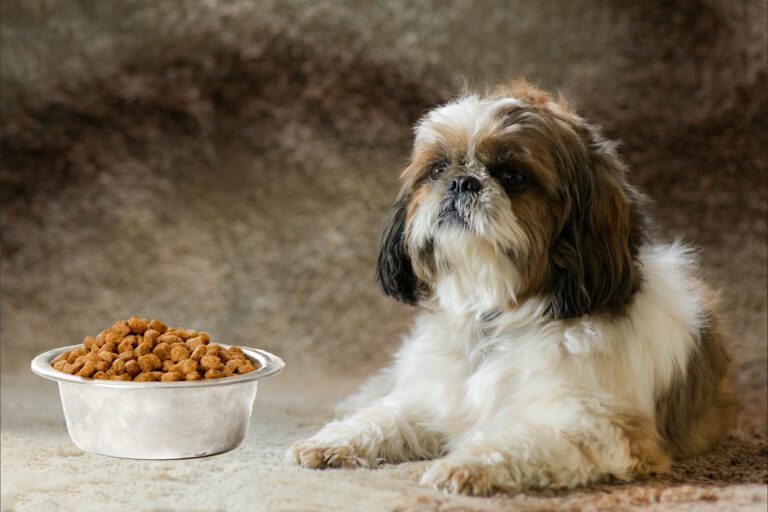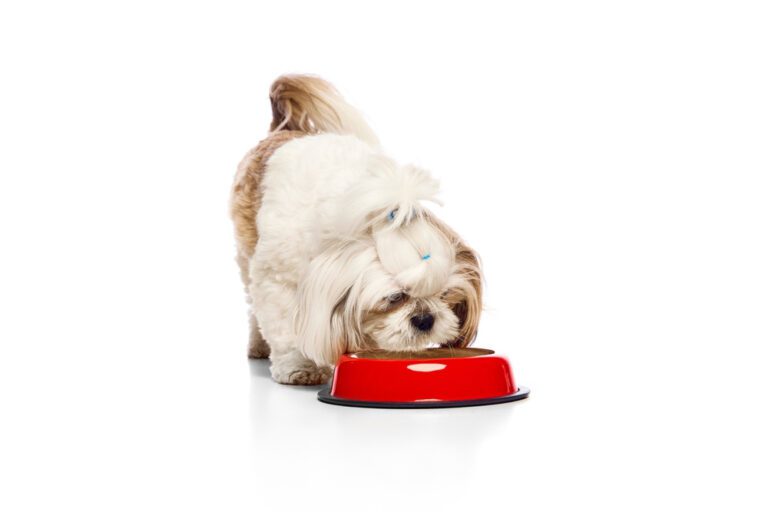Can Shih Tzu Eat Rice? The Ultimate Guide
Shih Tzus are known for their affectionate and friendly nature, making them beloved companions in many households. Can Shih Tzu Eat Rice? One common question that Shih Tzu owners have. In this comprehensive guide, we will thoroughly examine the nutritional requirements of Shih Tzus and carefully analyze the potential benefits and risks associated with feeding them rice.
The Nutritional Needs of Shih Tzus
Before we answer whether Shih Tzus can eat rice, it’s crucial to understand their nutritional requirements. Shih Tzus, like all dogs, needs a balanced diet that includes proteins, carbohydrates, fats, vitamins, and minerals. Each component is vital in maintaining your Shih Tzu’s overall health and well-being.

Proteins: The Building Blocks of Health
Proteins are the building blocks of life, and this holds true for our furry companions as well. Shih Tzus require a steady intake of high-quality proteins to support the growth, repair, and maintenance of their body tissues. Proteins are responsible for developing strong muscles, a lustrous coat, and producing essential enzymes and hormones. High-quality protein sources, such as lean meats and fish, should form a substantial part of your Shih Tzu’s diet.
Carbohydrates: A Vital Source of Energy
Carbohydrates provide a readily available source of energy for Shih Tzus. These lively little dogs are known for their playful nature, and carbohydrates help fuel their activities. However, it’s essential to select complex carbohydrates, such as whole grains like brown rice, over simple sugars. This ensures a steady release of energy and helps maintain healthy blood sugar levels.
Fats: Essential for Nutrient Absorption
Dietary fats are not to be demonized regarding your Shih Tzu’s health. Fats play a pivotal role in the absorption of fat-soluble vitamins (A, D, E, and K) and the overall balance of essential fatty acids. Opt for healthy fats like fish, flaxseed, and certain oils to support your Shih Tzu’s skin, coat, and overall wellness.
Vitamins: Key to Maintaining Vitality
A range of vitamins, including A, B, C, and D, are indispensable for Shih Tzu’s vitality. These micronutrients support various bodily functions, from the immune system to vision and skin health. Ensuring a well-rounded diet rich in fruits and vegetables can provide many essential vitamins.
Minerals: The Foundation of Health
Minerals like calcium, phosphorus, and potassium are critical for maintaining strong bones, teeth, and muscles. Shih Tzus, like other dog breeds, requires an appropriate balance of minerals to ensure optimal growth and development. Consult your veterinarian for the right mineral proportions for your specific Shih Tzu’s needs.
Understanding the intricate nutritional needs of Shih Tzus is a crucial step in providing them with a well-rounded and balanced diet. This foundation of proteins, carbohydrates, fats, vitamins, and minerals contributes significantly to your Shih Tzu’s overall health, and it’s the first step in making informed dietary decisions for your beloved pet.
Can Shih Tzu Eat Rice?
Rice, a dietary staple for many households, is often a subject of curiosity for Shih Tzu owners wondering if it’s suitable for their pet’s consumption. To address this, it’s essential to evaluate the appropriateness of rice in a Shih Tzu’s diet, considering their specific dietary needs, potential allergies or sensitivities, and the various types of rice available.
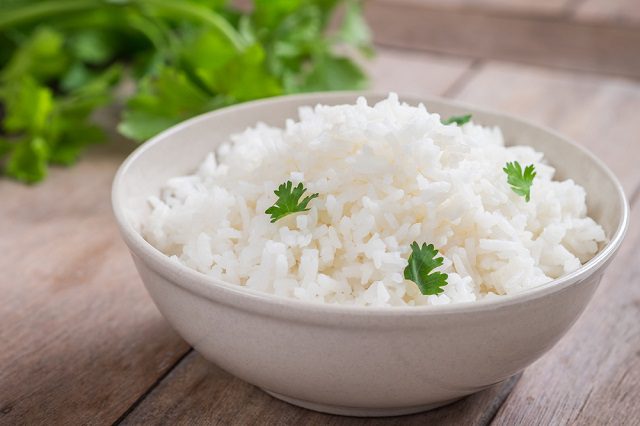
Dietary Needs of Shih Tzus
The decision to include rice in your Shih Tzu’s diet hinges on a comprehensive understanding of their unique nutritional requirements. Shih Tzus are a toy breed, and as such, they have relatively small stomachs and specific dietary considerations. While they share everyday nutritional needs with other dogs, the portion sizes and ingredient choices may differ.
Shih Tzus require a balanced diet of proteins, carbohydrates, fats, vitamins, and minerals to support their overall health. Proteins are essential for muscle maintenance and growth. Carbohydrates provide energy for their active lifestyle, and fats play a role in nutrient absorption, particularly fat-soluble vitamins. Ensuring your Shih Tzu’s diet is well-rounded with these components is a priority.
Rice in a Shih Tzu’s Diet
Now, let’s focus on rice. Rice is a carbohydrate source that provides energy and is relatively easy to digest. For some Shih Tzus, rice can be a welcome addition to their diet, especially when prepared plain without any additives like salt or spices. It’s important to choose plain, cooked rice without butter, sauces, or seasonings to avoid potential digestive upsets.
Shih Tzus with sensitive stomachs or those experiencing diarrhea might benefit from a bland diet that includes plain white rice, boiled chicken, or boiled lean ground beef. This can help soothe their digestive system.
However, while rice can be a part of your Shih Tzu’s diet, it should not replace essential components like proteins. Using rice as a supplementary carbohydrate source alongside high-quality protein and other nutrients ensures a balanced and nutritious meal.
Allergies and Sensitivities
As with any food, it’s crucial to be aware of potential allergies or sensitivities your Shih Tzu might have. Some dogs may develop allergies or sensitivities to certain grains, including rice. If you notice any signs of food allergies or sensitivities such as itching, gastrointestinal issues, or changes in behavior, consult your veterinarian to determine if rice or any other specific ingredient is the cause.
The question of whether Shih Tzus can eat rice is nuanced. It can be included in their diet, but it should be part of a well-balanced and adequately portioned meal that meets their dietary needs. Constantly monitor your pet for any adverse reactions and, if in doubt, consult with your veterinarian to make informed decisions about your Shih Tzu’s diet.
Risks and Benefits of Feeding Rice to Shih Tzus
Like all dietary choices for your Shih Tzu, the inclusion of rice in their meals comes with a set of advantages and potential drawbacks. It is essential to weigh both the benefits and risks to make an informed decision about whether rice is a suitable addition to their diet.
Benefits of Feeding Rice
1. Digestive Aid: Rice is known for its mild and easily digestible nature. It can be particularly helpful for Shih Tzus with sensitive stomachs or those recovering from gastrointestinal upsets. The blandness of plain, cooked rice can soothe the digestive tract and provide a source of energy without overwhelming the stomach.
2. Carbohydrate Energy: Rice is a valuable source of carbohydrates, which are essential for the energy needs of your active Shih Tzu. The complex carbohydrates found in rice can provide a sustained release of energy, supporting their playful nature and daily activities.
3. Variety in the Diet: Your Shih Tzu’s diet can help prevent monotony and provide a range of nutrients. Including rice as an occasional carbohydrate source can make their meals more interesting while maintaining balance.
Risks and Considerations
1. Allergies or Sensitivities: While rice is generally considered safe for dogs, some Shih Tzus may have allergies or sensitivities to grains, including rice. It’s crucial to monitor your pet for any signs of adverse reactions such as itching, digestive issues, or changes in behavior. If you suspect an allergy or sensitivity, consult your veterinarian for guidance.
2. Balanced Diet: Rice should not replace essential components of your Shih Tzu’s diet, such as high-quality protein. Feeding excessive rice and neglecting other nutrients can lead to imbalances in their overall nutrition. It’s important to use rice as a supplementary carbohydrate source rather than the primary component of their meals.
3. Portion Control: Proper portion control is vital when including rice in your Shih Tzu’s diet. Too much rice can lead to weight gain, a common concern in small dog breeds like Shih Tzus. Seek guidance from your veterinarian to establish suitable portion sizes based on your dog’s age, weight, and level of physical activity.
The decision to feed rice to your Shih Tzu should be based on a thorough evaluation of the potential benefits and risks. Rice can be a valuable addition to their diet when used appropriately, but it should not replace essential components like proteins. Continuously monitor your pet for any adverse reactions and seek professional guidance from your veterinarian to ensure that your Shih Tzu’s dietary choices align with their needs and well-being.
Guidelines for Feeding Rice to Shih Tzus
If you decide to include rice in your Shih Tzu’s diet, it’s essential to do so with care. In this section, we will provide guidelines and best practices to ensure your Shih Tzu enjoys rice safely and healthily.
Alternatives to Rice for Shih Tzus
While rice is a viable carbohydrate source for your Shih Tzu, it’s important to note that several alternatives can provide variety in their diet while maintaining nutritional balance. Exploring these alternatives ensures that your beloved pet receives a well-rounded and diverse range of nutrients.
1. Sweet Potatoes
Sweet potatoes provide a rich source of complex carbohydrates, dietary fiber, vital vitamins, and minerals. They are low in fat and can be a great addition to your Shih Tzu’s diet. These vegetables provide a naturally sweet flavor that many dogs find appealing. You can cook, mash, or even serve sweet potatoes as a healthy treat.
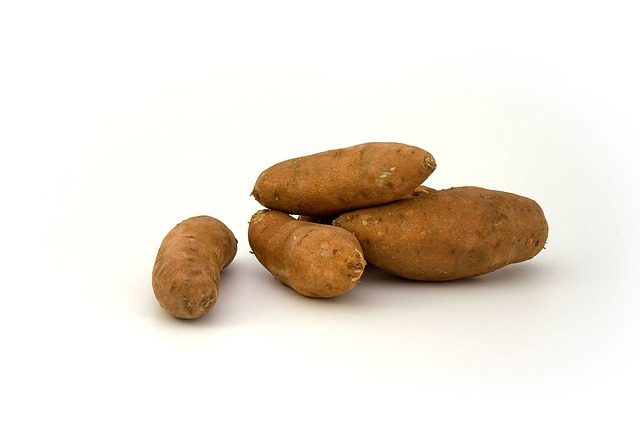
2. Oatmeal
Oatmeal is another carbohydrate option that offers dietary fiber, B vitamins, and essential minerals. It’s important to prepare plain, unflavored oatmeal without added sugars or artificial sweeteners. Oatmeal can be cooked and mixed with other ingredients to create a balanced meal for your Shih Tzu.

3. Quinoa
Quinoa is a high-protein grain that is also gluten-free, making it a suitable choice for Shih Tzus with grain sensitivities. It’s rich in amino acids, fiber, and vitamins and minerals. Quinoa can be cooked and added to your pet’s meals for an extra nutritional boost.
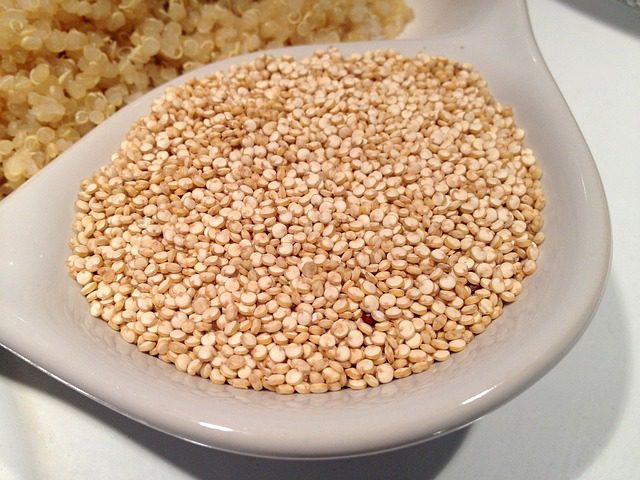
4. Barley
Barley is a whole grain that offers a good balance of carbohydrates and dietary fiber. It can support digestive health and provide a steady source of energy. Cooked barley can be incorporated into your Shih Tzu’s diet, mixed with protein sources and vegetables.
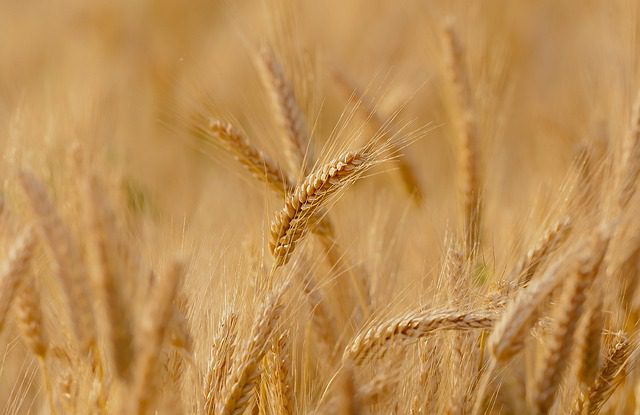
5. Pumpkin
Pumpkin is a nutritious and easily digestible carbohydrate source. It’s also known for its digestive benefits, particularly for dogs with mild stomach issues. You can use canned pumpkin (plain, not pumpkin pie filling) as an occasional addition to their meals or as a healthy treat.

6. Green Vegetables
Green vegetables like broccoli, beans, and peas can provide low-calorie, carbohydrate-rich options. These vegetables are packed with vitamins, minerals, and antioxidants. Steamed or lightly cooked green vegetables can be included in your Shih Tzu’s diet to add variety and nutritional balance.
7. Legumes
Legumes such as lentils and chickpeas are protein-rich and carbohydrate sources. They are not only nutritious but can also add a different texture to your Shih Tzu’s meals. Cooked and occasionally mixed with other ingredients, legumes can be a wholesome option.
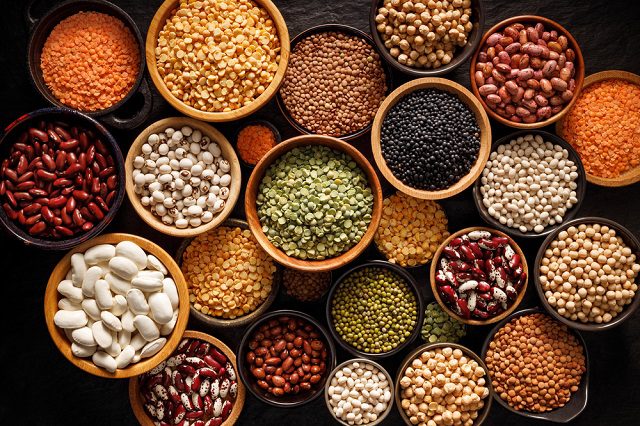
When considering these alternatives to rice, it’s essential to consult with your veterinarian or a pet nutritionist. They can provide guidance on the most suitable carbohydrate sources for your Shih Tzu based on their specific dietary requirements and any allergies or sensitivities they may have.
Incorporating variety into your Shih Tzu’s diet not only keeps mealtime exciting but also ensures that they receive a broad spectrum of nutrients to support their overall health and well-being.
Consulting with a Veterinarian
Your Shih Tzu, like any individual, has unique dietary needs that may not align perfectly with general guidelines or recommendations. Their age, weight, activity level, health status, and any existing allergies or sensitivities all play a crucial role in determining what constitutes a healthy diet for them. This is when the knowledge and experience of a veterinarian become priceless.
Personalized Guidance
Veterinarians are trained to assess the specific needs of your Shih Tzu. They can consider your dog’s age and life stage, whether a puppy, adult, or senior, and make recommendations tailored to their developmental requirements. Puppies, for instance, have different nutritional needs than adult dogs, and seniors may need special diets to address age-related concerns.
Health Conditions
If your Shih Tzu has any preexisting health conditions, such as diabetes, allergies, or gastrointestinal issues, a veterinarian can provide dietary recommendations that are optimized for managing these conditions. They can help you select foods that minimize the risk of exacerbating health problems and may even recommend therapeutic diets designed to address specific medical issues.
Allergies and Sensitivities
Some Shih Tzus may have allergies or sensitivities to certain foods, including grains like rice. Identifying and managing these allergies is crucial to your pet’s health and comfort. A veterinarian can conduct allergy tests and recommend suitable dietary alternatives to ensure your Shih Tzu’s meals are free from allergens that trigger adverse reactions.
Weight Management
Maintaining a healthy weight is essential for Shih Tzus, as they are a small breed prone to obesity. Veterinarians can help you determine the appropriate portion sizes, calorie requirements, and food choices to ensure your pet maintains a healthy weight. They can also guide you on adjusting the diet if your Shih Tzu needs to lose or gain weight.
Monitoring and Adjustments
Your Shih Tzu’s dietary needs can change over time, and regular check-ups with a veterinarian are essential. They can monitor your pet’s health and recommend adjustments to their diet as needed. As your Shih Tzu ages or if their activity level changes, the veterinarian can help you modify their diet accordingly to support their evolving needs.
Preventive Care
Veterinarians emphasize preventive care, which includes choosing the proper nutrition for your Shih Tzu. A well-balanced diet can contribute to your pet’s overall health and reduce the risk of certain illnesses. Regular consultations with your veterinarian can ensure that your Shih Tzu’s diet remains aligned with its long-term health goals.
Consulting with a veterinarian is not merely a recommendation but a vital step in providing your Shih Tzu with the best possible care. By seeking professional advice, you can rest assured that your pet’s dietary choices are aligned with their unique needs and that you are actively promoting their health, longevity, and well-being. Your veterinarian is your trusted partner in keeping your beloved Shih Tzu happy and healthy through well-informed dietary decisions.
Conclusion: Keeping Your Shih Tzu Healthy and Well-Fed
Whether Shih Tzus can eat rice is a nuanced question. To keep your Shih Tzu healthy and well-fed, it’s crucial to understand their unique nutritional needs. While rice can be a part of their diet, it should complement, not replace, vital components like proteins.
Consulting with a veterinarian is essential for personalized guidance, considering your dog’s age, health, and allergies. Regular monitoring and adjustments to their diet as they age or their needs change are also necessary. Overall, a holistic approach to their well-being, including diet, exercise, and veterinary care, ensures a happy and healthy life for your cherished pet.

